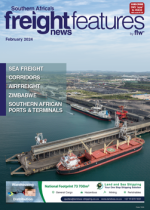LV: How do you foresee global economic conditions inf luencing the airfreight industry in 2024?GH: While the economic indicators suggest that inf lation is getting under control, there will be dwell time between the returning consumer activity and increased air cargo volumes due to high inventory levels. We anticipate that 2024 will start with a greater degree of optimism than 2023, but market conditions will likely remain volatile and uncertain for the first quarter. But overall, we anticipate 2024 being a better year than 2023.LV: Are there specific regions or markets that you believe will drive growth in air cargo?GH: US inf lation has dropped dramatically and US jobs growth has remained strong so it is likely that US imports will continue to show strong market numbers. We also expect to see continued resurgence in the Indian manufacturing sector so volumes should increase further with that. The China plus 1 strategy is also seeing fresh investment in South East Asia, so we can expect that region to generate further air cargo volumes as a consequence. Additionally, the Regional Comprehensive Economic Partnership free trade agreement, covering Japan, Korea, China and the Asean States, which came into effect in 2022, should also generate additional inter-regional air cargo volumes as many border restrictions and tariffs are removed under the agreement.LV: What regulatory challenges or changes do you foresee that could affect air cargo operations in the next year?GH: The full impact of Europe’s ICS2 regulatory filing requirements will certainly be felt across the industry as the various exceptions and delays are eventually overcome. With global attention heavily focused on sustainability, we may see governments looking at regulations and legislation to accelerate all industries' progression along the path of reduced CO2 and other greenhouse gas emissions. The recent COP28 meeting reviewed the 2023 edition of the global stocktake report which analyses governments' Nationally Determined Contributions, which is how each country intends to address the climate action required to limit the increase in temperature to a maximum of 1.5C by the end of the century as per the Paris Agreement.On a positive note, Icao is leading some work looking at economic regimes impacting air cargo vs passenger operations. As air cargo is unidirectional, the ability to implement efficient and viable air cargo networks with freighter aircraft relies on the ability to use them where there is cargo demand. Studies are under way within the Icao platform to look at how air traffic agreements, particularly the expanded implementation of 5th and 7th freedom rights, could bring benefits to the air transport community as well as to the broader global economy.LV: Are there lessons learned from the Covid pandemic that are shaping the industry's approach to future challenges?GH: First and foremost, prepare for the unexpected. Covid demonstrated that we could be hit by something unknown and unforeseen and yet so impactful. Agile, f lexible and adaptive will be keywords to apply to an industry responding to an ever-changing world. Another lesson is the need to accelerate digital adoption as we need to communicate and share data much more efficiently. We also need to focus on employees, the lifeblood of any organisation.

